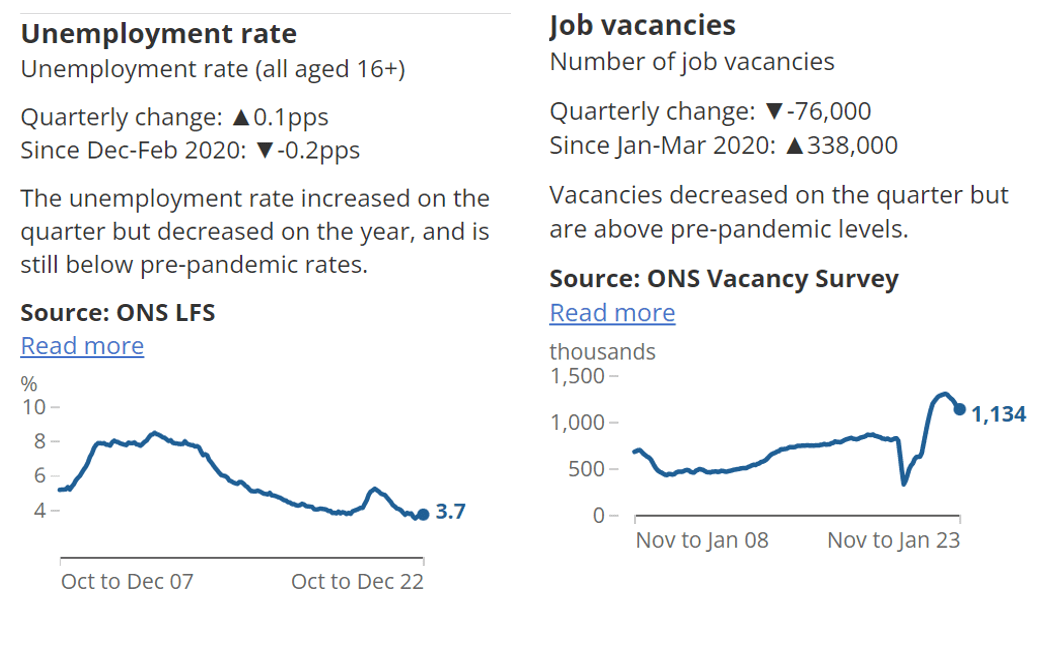Fostering a Positive Organisational Culture: From Luxury to Necessity
Find out more about our services?

Culture
April 26, 2024
The UK finds itself amidst an economic rollercoaster due to various factors, such as Brexit, political instability, and more. These circumstances have contributed to a shrinking economy and low productivity. Moreover, the ageing demographic exacerbates the situation, leading to a significant labour shortage that shows no signs of abating. In such a challenging scenario, organisations have a potential saviour: investment in and focus on culture. Organisational culture has evolved from merely being a nice addition to an imperative for businesses. It is now fundamental for organisations to develop purposeful, high-performing cultures with values aligned with their workforce. Failure to do so will impede organisation’s ability to attract and retain talent, as well as maximise the productivity of their existing workforce.
For many years, organisational culture has empowered businesses to gain a sustainable competitive advantage, distinguishing themselves from competitors. Renowned companies like Southwest Airlines, Netflix, Patagonia, Google and Apple have leveraged their distinctive cultures to become industry leaders. However, fostering the right culture has transitioned from being a unique selling point to a baseline requirement. It is now the minimum standard necessary to compete effectively.
To gain a deeper understanding of the current state of the UK’s economy and job market and to comprehend why organisational culture has become the be-all and end-all, let’s explore further.
Understanding the current socioeconomic and political state of the UK is an essential context required to fully comprehend the issues within the labour market.
Globally, inflation rates have skyrocketed from a manageable 2% in 2019 to a staggering 9% (Martin-Fagg, 2023). In the UK, inflation reached its peak in 2022, reaching 9.1% and is predicted to slightly decrease to an annual rate of 6.1% this year (Statista, 2022). Additionally, productivity within the UK is significantly lagging other G7 countries by a shocking 16%, marking the largest discrepancy since the commencement of ONS data in 1995 (UK Parliament, 2023). While some of this gap may be attributed to different measurement tools, there is overwhelming evidence of the UK’s economic shortfall. Predictions indicate that the UK’s economy is projected to shrink by 0.6% in 2023 (Islam, 2023), faring worse than Russia (Roth & Sauer, 2022). It’s clear that the UK is in a worse position, both economically and socially than its comparable counterparts, with five circumstances contributing towards this (Martin-Fagg, 2023):
Brexit – the referendum that changed the course of the UK’s future was not merely a political upheaval; it also had significant economic consequences. The resulting uncertainty understandably eroded the confidence of many potential investors. It wasn’t until 2022 that real business investment reached its pre-Brexit level, as demonstrated below:
This, alongside the fact that 10 Downing Street has seen a revolving door of Prime Ministers, with Liz Truss’s resignation after just 45 days (the shortest-serving PM ever) resulting in Sunak becoming the fourth PM in as many years (Wheeler & Franis, 2022). However, before Truss stepped down the release of her economic plan ‘plunged’ the UK into the brink of recession (Stewart and Allegretti, 2022). Whilst the UK’s recession was arguably unavoidable, Liz Truss confidently opposed this, stating that a recession was not inevitable’ (Cooban, 2022). It is understandable why investors may have lost confidence. This game of musical chairs has inevitably led to political instability, which, once again, adds uncertainty. Perhaps unsurprisingly, the UK’s investment share in GDP is exceptionally lower than other G7 countries as well as the likes of South Korea, Sweden and Australia (IMF, 2022).
Since the 2008 crash, there has been no real income growth for households in the UK. Following the trend of income increases, the median household income based on data from 1977-2007 should be around £60,000, whereas by the end of 2022, it was just £32,300 (ONS, 2022). Based on the UK government’s forecast, the real household disposable income per capita will have fallen by 3.7%, the largest fall in living standards since 1956 when data began (Clark, 2023). Resultantly, 2019 marked a 10-year high in British emigration to continental Europe (Stone, 2019); a trend that continued into 2022 where net emigration figures were higher overall than 2019 (D.Clark, 2022).
Painting this not-so-pretty picture of the UK economically helps to contextualise arguably the largest problem facing UK businesses: the labour market.
The issue of our ageing demographic has been discussed for years, but its impact is finally crystalising. In England, 19% of the total population is 65 and over, set to become 22% in just ten years (The State of Ageing, 2022). This, alongside the lowest birth rates in England and Wales, since records began (ONS, 2020), means that more people are leaving the workforce than entering. The net increase in the workforce was just 525,680, including work visas; however, 600,000 55-65-year-olds have retired early (Martin-Fagg, 2023). Essentially, the net supply of the workforce is almost zero, yet job vacancies are high, and employment rates are hitting record lows (ONS, 2022).

Capitalism is the socioeconomic basis of the UK’s society and it relies on the continuous growth of both the economy and organisations. However, there is a growing disparity between the growth required and the number of people able to achieve it. Based on predictions that the workforce will only expand by 0.5% and the UK government’s target of 2.5% real GDP growth, individual productivity must quadruple to deliver the target (Martin-Fagg, 2023). The most concerning part? The inherent nature of the ageing demographic problem means there is no easy fix, and it is only set to worsen.
Another factor set to intensify this crisis in the labour market is the unfortunate reality that while people may be living longer, they are also spending larger proportions of their lives in poor health. Since 1960, life expectancy has increased by more than ten years (ABPI, 2021) yet people are living, on average, 12 years in poor health – 14% longer than in 1990 (Vitality, 2021).
This not only increases the cost of supporting the older generations but also adds pressure to the NHS and social care system. From an organisational standpoint, the labour market could lose an increasing number of people to illness and even more to caring responsibilities. Currently, caring responsibilities alone account for 1.1 million of those economically inactive in the 25-49 age group (Cuffe and Barrett, 2023). These caring responsibilities and sickness represent the majority of individuals over 25 who are considered economically inactive (people who are not working but excluded from unemployment figures as they are not actively seeking work):
These prolonged periods of sickness in the UK impact the size of the labour market as well as the quality and quantity of work produced. Research has found that approximately 40% of the UK’s productivity loss, amounting to £39bn a year, can be attributed to employees’ unhealthy lifestyle behaviours and poor mental well-being (Vitality, 2021).
Overall, the combination of the fall in real household disposable income and the ageing demographic, alongside the constant pressure to grow economically, the UK’s labour market is only set to become more competitive. Not only are UK organisations competing with one another, they are also competing with the international job market.
If only there were a magical social complex within organisations that could help retain top talent, foster engagement and increase productivity all in one fell swoop – oh wait…..there is.
Culture will be essential in navigating the increasingly complex workforce, helping to attract and retain talent, and boost the productivity of the existing workforce. Employers have long enjoyed dominance in the labour market, with many individuals taking and staying in jobs they’ve disliked out of fear of unemployment. Now, organisations nationwide are going to great lengths to prove that they offer a business worth joining.
For far too long, culture has been seen as a nice-to-have, an optional extra in the business world, like a sea-view room in a hotel – pleasant if you have the means, but not essential to enjoy the holiday. Now? Without culture, your plane won’t even get off the tarmac. Previously, 82% of CEOs surveyed said that organisational culture provided them with a competitive advantage (Deloittes, 2016), but nowadays, it will at most provide competitive parity.
Organisational culture is like gravity; organisations cannot choose to opt out; it exists regardless of what you do and controls the direction your organisation moves in.
Organisations really have one of two options right now. Invest in culture or sprint around the hamster wheel of losing talented people and recruiting, training and developing their potentially less engaged replacements until you or your organisation collapses – whichever comes first.
Sounds dramatic, but just take a look at Blockbuster, Enron, Kodak, Sears, and Theranos – what did these organisations in different industries, sectors and countries have in common?
Their organisational culture killed them. Whether it’s the tolerance of deceit, corruption and greed, like in Enron and Theranos….or merely being closed-minded and resistant to new technologies like Blockbuster, Kodak and Sears…culture got them all in the end.
Personal Development
March 17, 2025
Management & Development
March 13, 2025
Personal Development
March 13, 2025
Strategic Execution and Implementation involves turning plans into action and ensuring organisational strategies are effectively implemented to achieve goals, improve performance, and drive business success.
Customer experience (CX) refers to customers' overall perception and interaction with a company or brand throughout their entire journey. It encompasses all touchpoints and interactions, from initial awareness to post-purchase support.
Growth, marketing, and sales are interconnected aspects of business that work together to drive revenue, acquire customers, and expand market presence. Here's an overview of each area and how they contribute to the overall success of a business.
People Performance focuses on understanding human behaviour, optimising team dynamics, and enhancing organisational effectiveness through psychological principles and performance management strategies.
Organisational Performance is a measure of how effectively an organisation achieves its goals, enhances productivity, and experiences growth through efficient processes, strong leadership, and employee engagement.
We value your privacy. We ensure that your data is secure and confidential. We never share client information with third parties, safeguarding your trust and confidentiality.
Ignite your organisation's potential with us. Our experienced consultants are ready to help you enhance efficiency, boost growth, and create a thriving workplace culture. With cutting-edge tools like Mindset Indicator Monitor, MiMLaaS, and Johari360, we offer tailored solutions to meet your unique needs. Whether you're looking to improve employee engagement, streamline operations, or develop leadership skills, we're here to support you every step of the way. Don't wait—reach out today and discover how we can transform your business. Chat with us now and start your journey to success!